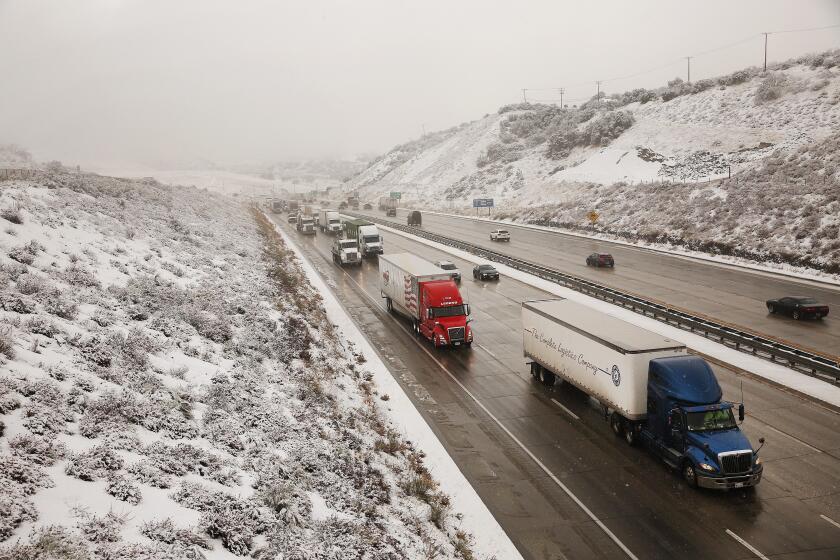Uber sues L.A. over real-time location data for scooters and bikes
For nearly a year, Uber has been fighting a rule that requires all companies to share real-time data on each scooter and shared bicycle trip taken in the city of Los Angeles.
The Silicon Valley giant, which owns the scooter and bike company Jump, escalated that battle on Tuesday by suing the city in federal court.
Uber’s 44-page complaint argues that L.A.’s data-sharing requirements violate the protections against unreasonable search and seizure in the 4th Amendment and the California Constitution.
The lawsuit has the potential to shape how cities across the United States balance oversight with user privacy as shared bicycle and scooter companies proliferate.
Uber’s federal lawsuit against Los Angeles
The framework that Los Angeles created to track scooters and bicycles locally has since been adopted by more than a dozen other cities, including Austin, Seattle and San Jose.
Los Angeles officials have said collecting detailed data is necessary to determine which scooter companies are flouting new rules. They have also argued that the companies cannot be trusted to regulate themselves.
Uber has said that the city can achieve those goals without real-time data, and that sharing data on riders in real time could easily reveal where people live, work, socialize or worship.
The Transportation Department, which oversees the city’s scooter permit program, cannot comment on “active litigation,” spokeswoman Connie Llanos said Wednesday.
“This is unfortunate timing on the part of Uber, as the city’s resources are consumed by responding to the pandemic,” Llanos said in an email.
During the city’s one-year pilot program, eight companies had permits to operate, managing a fleet of about 32,000 scooters and bikes that see about 1 million trips per month.
Each company was required to share real-time data on the start point, end point and travel time of each trip. Uber had been providing the information on a 24-hour delay, but is now in compliance with the city’s rules, Llanos said.
Los Angeles suspended Uber’s permit in October after six months of conflict over the rule. Uber lost its appeal last month.
The appeal’s hearing officer said that both sides had weak points in their arguments: Uber’s attorneys did not provide examples of scooter data being used to personally identify a rider, and the city did not explain what problems could be prevented or solved with data reported within five seconds.
The Transportation Department has urged California regulators to adopt a similar model for trips made in Uber and Lyft cars, which would reveal vast amounts of information on their operations statewide — data cities badly want to review, but that the companies have jealously guarded.
Uber’s lawyers asked a federal judge to prevent the Transportation Department from “taking any actions to implement or enforce” the geolocation requirements, including “any actions to deny, withhold, withdraw or cancel a permit for Jump to operate in the city.”
More to Read
Sign up for Essential California
The most important California stories and recommendations in your inbox every morning.
You may occasionally receive promotional content from the Los Angeles Times.











